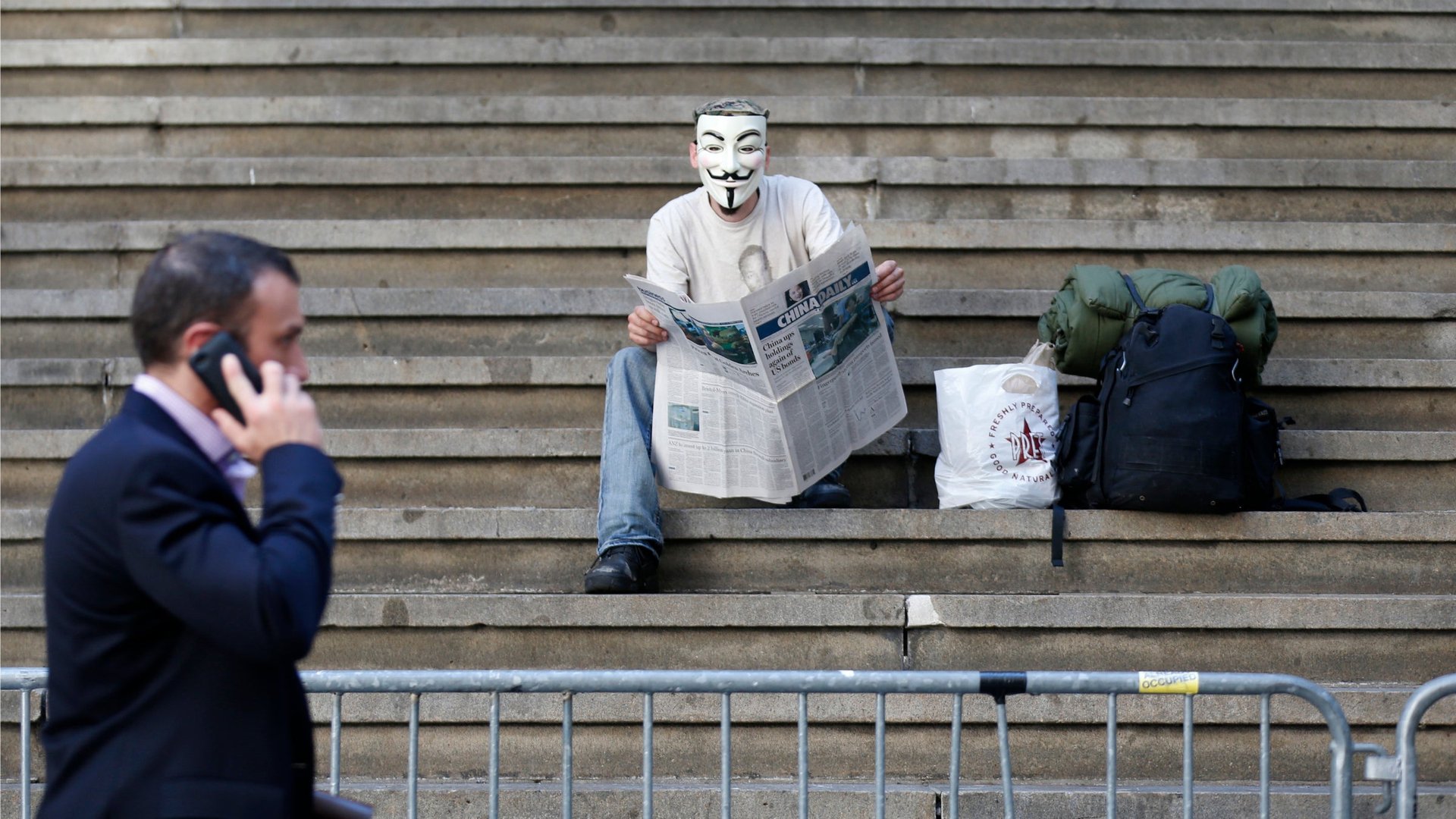Why inequality is worse in the US than in France
The rich aren’t just different from you and me. They’re different from the rich in other countries too—they have more money as a share of the economy.


The rich aren’t just different from you and me. They’re different from the rich in other countries too—they have more money as a share of the economy.
Now, all societies are unequal, but some are more unequal than others. The question is why the US has become more so than just about any other rich country the past 30 years. After all, if rising inequality is mostly about universal factors like technology and globalization, we would expect the rise of inequality to be, well, universal. It hasn’t. As you can see in the chart below from a new paper by Facundo Alvaredo, Anthony Atkinson, Thomas Picketty, and Emmanuel Saez (AAPS), the top 1 percent have risen and risen in the U.S., but have only just risen, if that, most everywhere else. How’s that for exceptionalism?
(Note: These numbers do not include capital gains for the UK or France, nor for Canada before 1972, and only partially for Australia).
This chart is a little tricky, so take another look. It compares the change in the top one percent’s share of pre-tax income with the change in top marginal tax rates across the developed world the past half-century. And it sure looks like there’s some kind of relationship here. The more taxes fell on the rich, the more the rich made before taxes. And it’s not clear why. It could be that the rich work more when they get to keep more of what they earn. Or it could be that they negotiate for more. Or that lower taxes mean less tax avoidance.
Or it could be something other than taxes. As the authors point out, the same political currents that brought top marginal rates waaay down also brought regulation down. And that was a perfect storm for Wall Street. Policymakers let banks get into old markets they’d been banned from before, and refused to regulate new markets—hello, derivatives—they would have been banned from under the old regulatory regime. And just like that, the universe had found its masters. As you can see in the chart below from a 2012 paper by Jon Bakija, Adam Cole, and Bradley Heim, via Mike Konczal, Wall Street was just about the only group to increase its share at the top, from 7.7 to 13.2 percent, between 1979 and 2005.
But it’s not just that Wall Street took up a bigger slice of the top 1%. Wall Street remade the rest in its image. The shareholder value revolution might have been an albatross for the real economy, but it was a windfall for the financial one. CEOs stopped investing as much in tomorrow’s profits to boost today’s: cost-cutting, buybacks, and dividends became the new mantra. Why? Well, as you can see above, non-financial executives stopped getting paid so much in salaries, and started getting paid more in stock options. Much, much more. Indeed, pliant corporate boards were more than willing to throw basically whatever options CEOs wanted at them. And, as Dylan Matthews of the Washington Post points out, this only picked up after Bill Clinton tried to crack down on cash, but not stock, payouts to executives back in 1993. Companies larded management with more and more stock, and, as Josh Bivens and Larry Mishel write, CEO pay became more and more disconnected from the rest of the economy. The top 1 percent leveraged itself to the market, and haven’t looked back.
There was nothing inevitable about the return of the rentiers. At least not this kind of return. Now, as you can see below, rentiers have even returned in France, where inheritances are back up to 1920s-levels, but inequality hasn’t. That’s because policy can still lean against the top 1%—or it can lean with the top 1%. Guess which way it’s leaning now.
Imagine a box. It’s a comfortable box, luxurious even, but a box nonetheless. That’s where the top 1% lived before 1980. That’s where the postwar system of high taxes and a highly-regulated economy put them—and kept them. But this postwar system hit a wall in the 1970s. Ever-increasing inflation and overseas competition forced policymakers to ditch the old ways. And ditching the old ways took apart that box, piece-by-piece. That’s where the feedback loops between politics and economics really took off. See, policymakers started dismantling the box out of necessity—but then they kept doing so, because the top 1% wanted them to. Tax cuts and deregulation helped the rich more than the rest, and then the rich used that money to lobby for even more tax cuts and deregulation. And on, and on it went.
In other words, Bill Clinton had it wrong. It’s the politics, stupid.
Matthew O’Brien is an associate editor at The Atlantic covering business and economics.